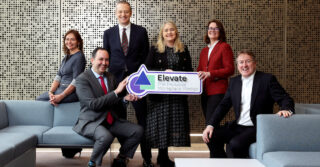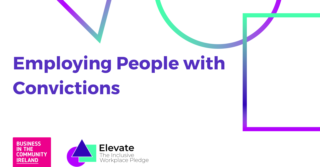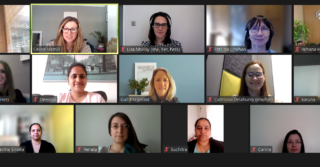How to manage ageism in the workplace
We know the Irish workforce is aging. Estimates from the Central Statistics Office indicate there will be about 1.5 million people aged 65 or over in Ireland by 2051. Also, with the qualifying age for the old-age pension likely to be pushed out, people are going to be in the workplace for longer. As such having an understanding of the age profile of the workforce and developing strategies to mitigate risks is going to become increasingly important for employers.
It is crucial to understand what Ageism means – WHO refers it to the stereotypes (how we think), prejudice (how we feel) and discrimination (how we act) towards others or oneself based on age. And many a times, these stereotypes unknowingly come in play at the workplace many a times.
As mentioned in an Irish Times article, previous research into ageism in the Irish workplace found that almost 90 per cent of workers over 55 believe their age went against them when seeking employment, while more than a third said potential employers saw them as too old for industries such as IT. In fact, in some sectors 40 is already considered “over the hill”.
What does Ageism look like in the workplace?
Some key areas of where many people in the workforce face Ageism are:
- Recruitment biases and decline in employment rate with increasing age – assumptions like they would be overqualified / underqualified or too expensive or too senior or too junior take away the opportunities from many people.
- People of certain age are explicitly or implicitly excluded from training programs – biases like older people won’t be tech-savvy and find it harder to learn new skills and are counting down the days to retirement.
- Impact of mandatory retirement age has far reaching impact on people’s health – mental health, physical health and social wellbeing
- Transition to age friendly workplaces/ gradual change to work suited to the needs of the person – while an older person may require more flexibility in schedules, younger employees who are working in isolation at home are unable to learn from being around co-workers.
- Grouping employees by age leading to exclusion of people of certain age from many activities – Some younger employees aren’t given time off during the Christmas and summer holidays because they don’t have young children at home.
- Banter and Jokes: Age related comments or jokes made about colleagues are commonplace – something that seems like banter can lead to isolation, poor mental health and grounds for age discrimination
- Intersectionality of age with other underrepresented groups like gender, race, disability etc. leads to disgruntled and disengaged employees – In an article by Thom Dennis, he mentioned that many women who suffered from burnout during the pandemic already experience ageism as young as 40 because employers assume that they have less ambition and energy than their younger colleagues. Attitudes to menopause are largely based around avoidance; most male leaders have little or no understanding of this phase in every woman’s life and associate it with a mindset of the end of a woman’s ability to contribute.
Top Tips to be Age Inclusive
Age Action is the leading advocacy organisation on ageing and older people in Ireland. At a recent peer circle event for the Elevate Signatories, Age Action Ireland shared insights and strategies for building Age Inclusion at workplace. These are simple actions that employers can take to build an Age Inclusive culture in the workforce:
Be flexible about flexible working: In this new world where hybrid is a norm, provide employees with opportunities to assess what works best for them.
-
- Widen the range of flexible working options – formal and informal
- Help people navigate the system
- Empower managers to manage flexibility
- Embed flexibility in the culture of the company and not as a favour to any one person
Hire age positively: A study indicates that many seasoned workers found themselves unemployed by the impact of the pandemic. It indicates that workers didn’t leave the job market because of the “Great Resignation”. It was the “Great Kick Out the Door.” Younger people also found it difficult to get their foot inside the door because not many companies were looking for hiring fresh talent. Actively source candidates of all ages
-
- Train your team for unconscious bias
- Review job adverts with biased language – avoid using words like “energetic”, “young”, “dynamic, “senior” to more general words like “dedicated”, “proactive”, “passionate”
- Put AGE into your D&I strategy
- Allow collaboration amongst intergenerational teams to break the bias
Health: While health conditions are not inevitable with age, the likelihood of having one or more long-term condition does increase with age. The risk of losing employment with a health condition is higher at older age and it can lead to long term unemployment. Irrespective of the age, employees must be given fair mechanisms to address this:
-
- Encourage early discussion of health issues
- Develop simple procedures for support in managing health at work
- Communicate regularly on how to raise health issues and access support
- Proactively facilitate carer’s leave
Career Development: Equal access to career development, training and progression must be given to all employees irrespective of their age:
-
- Ensure Learning and development opportunities are available to all equally
- Provide career guidance at mid-life and beyond retirement plans
- Help people manager transitions and plan holistically for future
- Reverse mentoring to promote intergenerational knowledge transfer
- Adjust training programs to meet the needs of older people – e.g.: more self-paced trainings, trainings for those with lower formal education etc.
Create Age Positive Culture: Having a safe space work environment where employees of all ages can fully participate in the company’s activities is a key step in building the company’s culture.
-
- Avoid retirement policies that only focus on homogenous workers and do not account for women or workers in physically demanding jobs
- Encourage managers to value skills and how they match the role, not age. There is much wisdom that comes with the experience of life, wisdom that adds pragmatism, realism as well as creativity and healthy challenge.
- Build Employee Resource Groups/ Networks to engage people of different generations and provide them with a platform to openly discuss their concerns
- Ensure all meetings and company social activities are fully inclusive and encourage all to attend.
- Role model the right behaviours and call out the wrong ones. Encourage individual responsibility and a speak-out workplace culture.
Being Age Inclusive – Employer initiatives
- Assess business continuity plans with ageing population. Build strategic workforce planning to retain experienced talent and allow young talent to build the required skills.
- When hiring for a position – ask for relevant experience if the candidate appears “too senior” and comes with experience of a few decades. Allow them the opportunity to explain how they fit into the open role.
- Do not make assumptions if all older applicants would be overqualified, too expensive, or that they wouldn’t be interested in a certain role. Similarly, give opportunities to young talent, talk to them about ideas and ways of working and bring in fresh perspectives.
- Build strong mechanisms for intergenerational collaboration e.g.: mentoring and reverse mentoring programmes
- Open conversations around age related/ life cycle policies with employees – give them platforms to discuss the issues and address their concerns
- Build career pathways in the company by introducing internship and apprenticeship programmes
Success Stories
- BT Early Careers Program: In 2022 BT Ireland recruited 20 candidates to the Early Career Programmes including apprenticeships, internships and graduate placements. This programme puts a strategic focus on the attraction and development of the future leaders of the business, providing working environments that allow the early career colleagues to flourish and help develop a workforce that is powered by diversity of thought and is ready for now and future skill requirements.
As the demographics of societies across the world shift with birth-rates falling and people living longer, ageism becomes increasingly damaging. Companies that embrace the reality of these social trends will benefit from the advantages that a truly diverse and inclusive workforce offers.
The Elevate Pledge signatories have come together to learn and create solutions that support in building an inclusive workforce and having a social impact on the Irish society as a whole.
Find out more about our Inclusive Workplace Pledge, Elevate.







